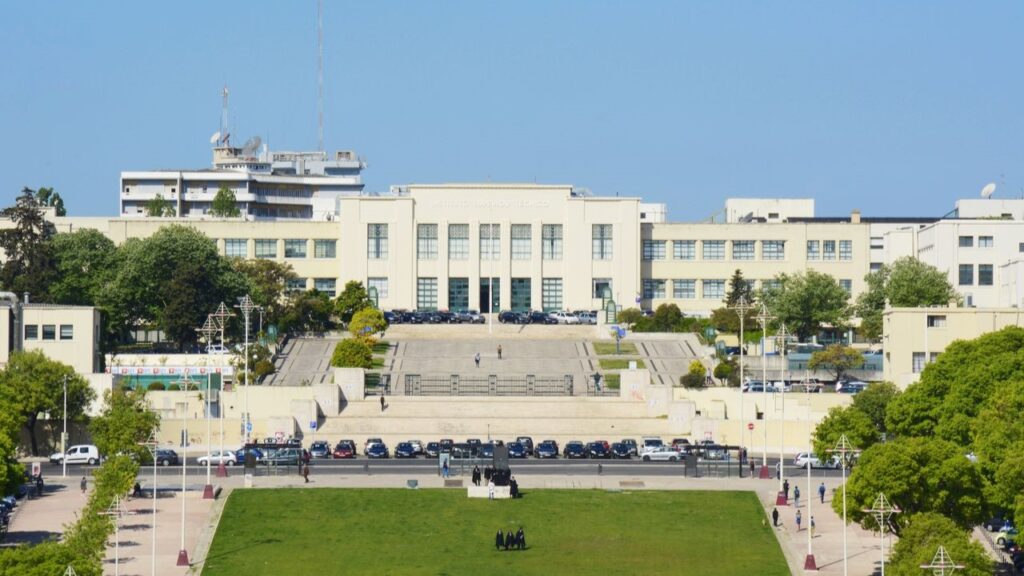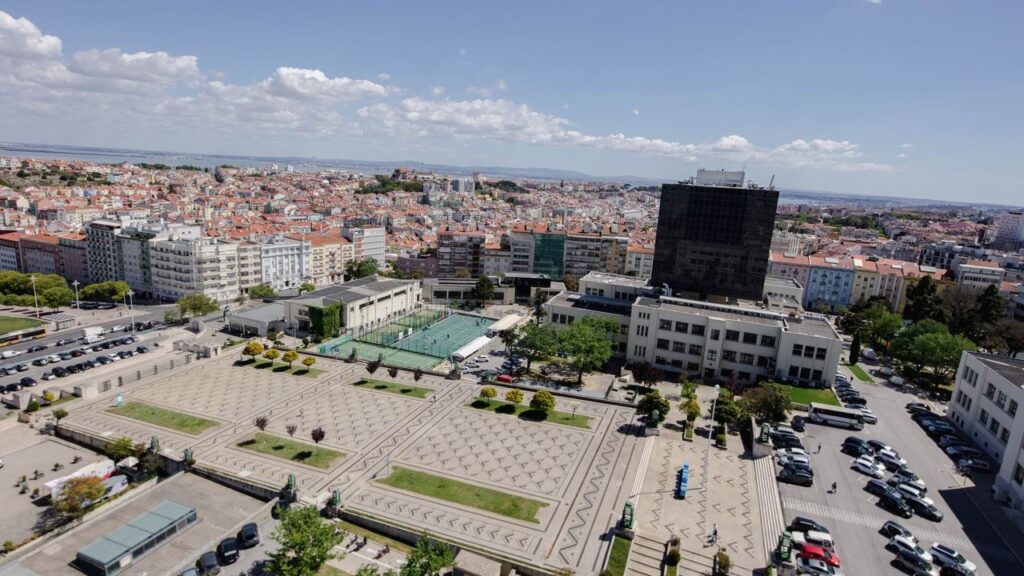Non-globular proteins in the era of Machine Learning
COST Action CA21160
ML4NGP WORKSHOP
THIS EVENT HAS PASSED.
Workshop on Single-Molecule FRET of Non-globular proteins
September 25-27, 2024
Lisbon, Portugal



DESCRIPTION
The workshop on “Single-Molecule FRET of Non-globular proteins” specifically focused on three major goals: (i) set the best-practices to generate, curate and store single-molecular FRET (smFRET) experimental data; (ii) improve smFRET data analysis and interpretation; (iii) build the basis for establishing a FRET database.
Leading experts in single-molecule FRET field and integrative approaches (such as molecular simulations) gathered to discuss the current challenges and approaches on the following topics:
- Reliability and accuracy of smFRET experiments (Efforts from FRET community)
- Data Analysis – from globular to non-globular proteins (IDPs) and dye models
- Conformational dynamics
- Integrative-structural modelling (molecular simulations)
- Data deposition (Minimum Information Required) and models (softwares)
CONFIRMED Participants
Prof. Achillefs Kapanidis, University of Oxford, United Kingdom
Dr. Alexander Monzon, Department of Information Engineering, University of Padova, Italy
Dr. Ana M. Melo, Institute for Bioengineering and Biosciences at Instituto Superior Técnico, Portugal
Prof. Andrea Soranno, Washington University in St. Louis, US
Prof. Ben Schuler, University of Zurich, Switzerland
Prof. Claus Seidel, Heinrich-Heine-Universität Düsseldorf, Germany
Dr. Daniel Nettels, University of Zurich, Switzerland
Darius Sulkis, Vilnius University, Lithuania
Prof. Don Lamb, Ludwig-Maximilians-Universität München, Germany
Prof. Edward Lemke, Johannes Gutenberg University Mainz, Germany
Prof. Eitan Lerner, Hebrew University of Jerusalem, Israel
Prof. Elizabeth Rhoades, University of Pennsylvania, US
Dr. Gabor Erdos, Eötvös Loránd University, Hungary
Prof. Gerhard Hummer, Max Planck Institute of Biophysics, Germany
Prof. Hagen Hofmann, Weizmann Institute of Science, Israel
Hamidreza Ghafouri, University of Padova, Italy
Prof. Jelle Hendrix, Hasselt University, Belgium
Joana Paixão, Institute for Bioengineering and Biosciences at Instituto Superior Técnico, Portugal
Dr. Line Mørkholt Lund, Aarhus University, Denmark
Dr. Maria Cristina Aspromonte, University of Padova, Italy
Prof. Marijonas Tutkus, Vilniaus University, Lithuania
Dr. Markus Götz, PicoQuant, Germany
Prof. Martin Hof, J. Heyrovský Institute of Physical Chemistry of the CAS, Czech Republic
Prof. Michael Schlierf, Technische Universität Dresden, Germany
Prof. Mikayel Aznauryan, University of Bordeaux, France
Dr. Milos Ivanovic, University of Zurich, Switzerland
Prof. Pétur O Heidarsson, University of Iceland, Iceland
Dr. Robert Best, NIH, USA
Prof. Sandra Macedo- Ribeiro, i3S-Porto, Portugal
Prof. Silvio Tosatto, Department of Biomedical Sciences, University of Padova, Italy
Prof. Thorben Cordes, Ludwig-Maximilians-Universität München, Germany
Prof. Victoria Birkedal, Aarhus University, Denmark
PRELIMINARY PROGRAM
SEPTEMBER 25, 2024
08:45-09:15
Registration
09:15-09:30
Welcome and introduction
Session I
09:30-10:00
Untangling the role of disordered proteins in neurodegeneration by advanced fluorescence methods
Ana Melo
10:00-10:30
FRET first, sequence later: a new tool for sequence-dependent protein-DNA interactions
Achillefs Kapanidis
10:30-11:00
Coffee Break
11:00-11:30
Order from disorder: single molecule studies of aggregating proteins
Elizabeth Rhoades
11:30-12:00
Model-free photon analysis of diffusion-based single-molecule FRET experiments
Hagen Hofmann
12:00-12:30
TBA
Jelle Hendrix
12:30-14:00
Lunch
Session II
14:00-14:30
Conformation dynamics of G-rich DNA knots with single molecule FRET
Victoria Birkedal
14:30-15:00
Mapping conformational ensembles of pioneer factors to harness cell reprogramming
Pétur O Heidarsson
15:00-15:30
Coffee Break
15:30-16:00
Farewell to single well: Fully automated multiwell smFRET and applications
Michael Schlierf
16:00-16:30
Single-molecule fluorescence measurements of disordered proteins and nucleic acid interactions
Andrea Soranno
16:30-17:00
Overview of research infrastructure for Intrinsically Disordered Proteins
Silvio Tosatto
17:00-18:00
Wrap-up & Discussion
SEPTEMBER 26, 2024
Session III
09:00-09:30
Integrative dynamic structural biology with multi-modal fluorescence spectroscopy: Making structural and associated kinetic information accessible
Claus Seidel
09:30-10:00
Waiting to get things right: Order of domain folding in MBP
Don Lamb
10:00-10:30
Decoupling lifetime-scale distance fluctuations from equilibrium distance distributions in FRET measurements of disordered biopolymers
Eitan Lerner
10:30-11:00
Coffee Break
11:00-11:15
Accuracy and reproducibility of smFRET analysis tools
Markus Götz
11:15-11:30
DNA-protein interaction studies using smFRET and TIRF microscopy
Marijonas Tutkus
11:30-12:00
Molecular behavior of disordered translation initiation factors across distinct self-association regimes
Mikayel Aznauryan
12:00-12:30
Decoding Molecular Plasticity in the Dark Proteome
Edward Lemke
12:30-14:00
Lunch
Session IV
14:00-14:30
Integrating molecular dynamics simulations and fluorescence experiments
Gerhard Hummer
14:30-15:00
Using smFRET measurements to improve the accuracy of protein simulations
Robert Best
15:00-15:30
TBA
Ben Schuler
15:30-16:00
Coffee Break
16:00-16:30
Protein hydration and dynamics seen by fluorescence: TDFS and PET-FCS
Martin Hof
16:30-17:30
Wrap-up & Discussion
19:30
Social Dinner
SEPTEMBER 27, 2024
Session V
09:00-09:30
From accurate FRET studies in proteins to systematic assay design and benchtop experiments
Thorben Cordes
09:30-10:30
Discussion
10:30-11:00
Coffee Break
11:00-13:00
Discussion and closing remarks
13:00-14:30
Lunch
Location & venue
VENUE
The 3rd ML4NGP workshop took place at the Instituto Superior Técnico (IST), in Lisbon, Portugal.
Instituto Superior Técnico aims to contribute to the development of society, promoting excellence in higher education, in the fields of Architecture, Engineering, Science and Technology by developing Research, Development and Innovation (RD&I) activities.
The institute has three campi, and the workshop will take place at Alameda Campus, with access to public transport network and Shuttle.
ORGANIZATION
Scientific COMMITTEE
Ana Melo, Instituto Superior Técnico, University of Lisbon, Portugal
Alexander Monzon, Department of Information Engineering, University of Padova, Italy
Silvio C.E. Tosatto, Department of Biomedical Sciences, University of Padova
Ben Schuler, University of Zurich, Switzerland
LOCAL ORGANIZING COMMITTEE
Ana Melo, Instituto Superior Técnico, University of Lisbon, Portugal
This event is part of the activities of the COST Action ML4NGP, CA21160, supported by COST (European Cooperation in Science and Technology).
